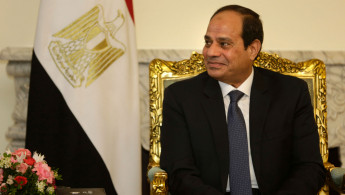Egypt's Sisi warns of looming 'harsh austerity measures'
Egypt's president has warned that "harsh economic measures" are in store for Egyptians to save an economy on the verge of collapse, as the government negotiates a $12 billion loan programme with the International Monetary Fund.
Abdel Fattah al-Sisi said on Monday that tough austerity measures will be implemented to reduce the country's deficit that will include subsidy cuts, tax reforms and privatisation of state-owned companies.
"The problem is whether public opinion is prepared to accept the measures which could be tough or harsh," Sisi said during a speech at a youth leadership conference.
"Egyptians love their country and are able to face hardship but they are too busy with their daily lives and thus must be afforded the correct information regarding the measures."
Last week, it emerged that Egypt was in the "final stages" of negotiating an agreement with the International Monetary Fund to secure a $12 billion loan over three years, while targeting more loans totalling $7 billion annually.
Sisi also said that Egyptians would "very soon" be able to purchase US dollars at a unified rate, adding: "The next few days will see a lot of good news for the Egyptian people."
The Egyptian pound has been falling to new lows; the official central bank rate is 8.78 Egyptian pounds to the dollar, but the true price on Egypt's black market is close to 13 to the dollar.
Years of unrest since the 2011 overthrow of longtime autocrat Hosni Mubarak have taken a heavy toll on both foreign investment and tourism, which along with Suez Canal revenues and remittances from Egyptians working abroad are the primary sources of foreign currency.
Foreign currency reserves fell 18.1 percent from June to December, shrinking to $16.5 billion, before edging up to $17.546 at the end of June, according to central bank data.
Egypt had $36 billion in reserves before the 2011 uprising.





 Follow the Middle East's top stories in English at The New Arab on Google News
Follow the Middle East's top stories in English at The New Arab on Google News
![Israeli forces ordered bombed Gaza's Jabalia, ordering residents to leave [Getty]](/sites/default/files/styles/image_330x185/public/2176418030.jpeg?h=a5f2f23a&itok=_YGZaP1z)

